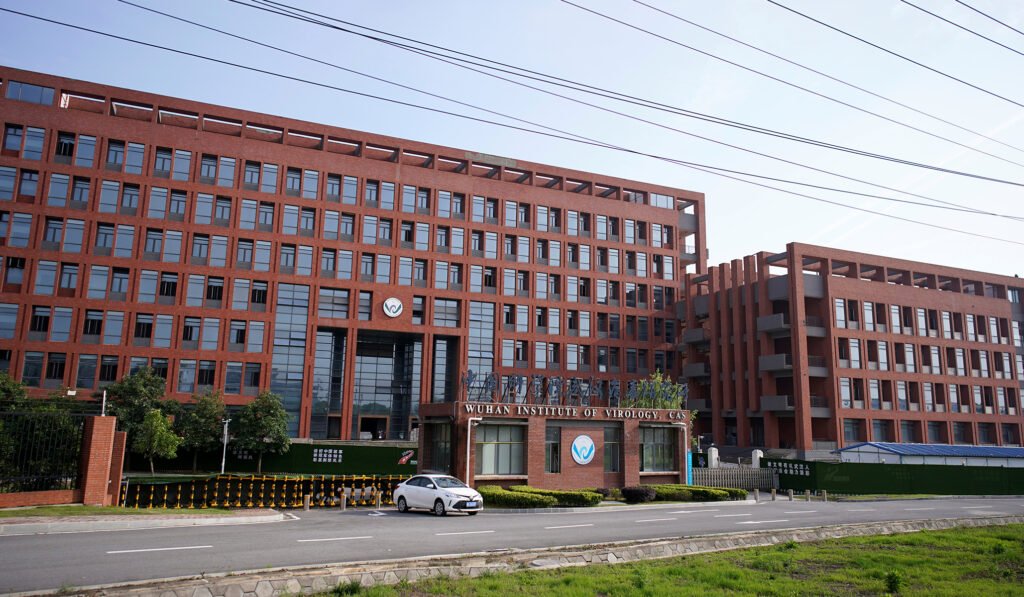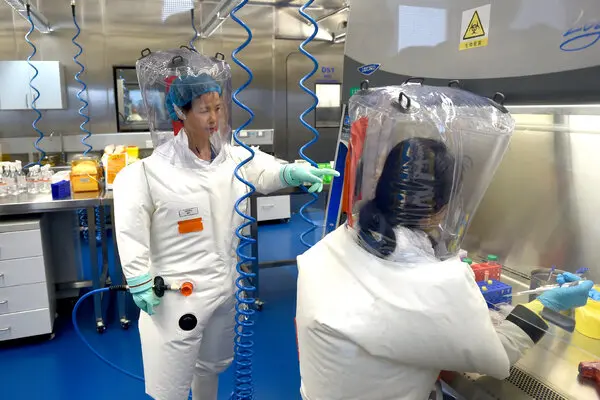Introduction: Unraveling the Deception in Gain-of-Function Research
In a recent investigative report, journalist Emily Cop has brought forth documents that suggest gain-of-function researchers may have misled accountability officers about their true intentions just before the onset of the COVID-19 pandemic. The report sheds light on how American scientists may have concealed their plans for high-risk gain-of-function coronavirus research at the Wuhan Institute of Virology (WIV). This revelation, based on documents obtained by Cop, raises concerns about the transparency and safety standards surrounding the research conducted at the epicenter of the global health crisis.
The US Right to Know Report: Insights into Deceptive Practices
The US Right to Know report, detailed by Emily Cop, underscores the potential manipulation of information by American scientists regarding the nature of research to be conducted at WIV. Cop’s findings suggest that these scientists, in their early drafts of project proposals, may have downplayed the extent of research intended to be carried out in Wuhan. Notably, the documents imply that the scientists may have aimed to conduct high-risk gain-of-function coronavirus research under less stringent safety standards in the Wuhan lab.

Eco Health Alliance’s Response: A Denial of Wrongdoing
In response to Cop’s report, Eco Health Alliance, a US Government contractor involved in gain-of-function research, dismissed the allegations. They labeled Cop’s findings as a “nothing burger” and contended that the documents represented incomplete or early drafts of proposals. The alliance argued that the allegations were based on a misunderstanding of edits, comments on the documents, and out-of-context quotations. However, Cop, in defense of her reporting, highlighted that Eco Health Alliance’s response did not contain any false statements and questioned their silence until after the story was published.
Critical Excerpts from Cop’s Report: Unveiling Deceptive Intentions
One of the most crucial excerpts from Cop’s report reveals a comment within the project proposal indicating a potential intention to move a significant portion of the research to Wuhan once the grant is approved. The comment reads, “If we win this contract, I do not propose that all this work will necessarily be conducted by Ralph.” Ralph refers to Ralph Barck from UNC Chapel Hill, one of the researchers. The comment continues, “Once we get the funds, we can then allocate who does what exact work, and I believe that a lot of these assays can be done in Wuhan as well.” This raises questions about the researchers’ transparency and their efforts to downplay Wuhan’s role in the proposed research.
Safety Concerns and Draft Proposals: A Risky Undertaking
Cop’s report further highlights concerns about safety standards and precautions associated with the gain-of-function research. The proposal discussed engineering high-risk coronaviruses, including synthesizing spike proteins with furin cleavage sites—a feature linked to the heightened infectiousness of SARS-CoV-2. The acknowledgment that certain aspects of the research might be conducted in Wuhan under lower safety standards is particularly troubling. It suggests a willingness to circumvent safety precautions and potentially puts forth a disregard for the international implications of such research.
International Implications and Need for Accountability
The potential deception surrounding gain-of-function research at WIV raises broader questions about international cooperation, transparency, and accountability in scientific endeavors. The acknowledgement that researchers might have different safety standards in mind for Wuhan compared to the US underscores the need for a unified and stringent approach to prevent the misuse of scientific research. The issue goes beyond partisan lines, and the lack of widespread interest in investigating these matters is a cause for concern.
Conclusion: Demanding Further Investigation
As the revelations from Cop’s report unfold, it becomes imperative to demand further investigation into the intentions and actions of gain-of-function researchers. The potential implications of conducting high-risk research under varied safety standards need to be thoroughly examined to ensure the responsible and ethical pursuit of scientific knowledge. The international community must prioritize transparency, collaboration, and accountability to prevent the recurrence of situations that could lead to global health crises.
